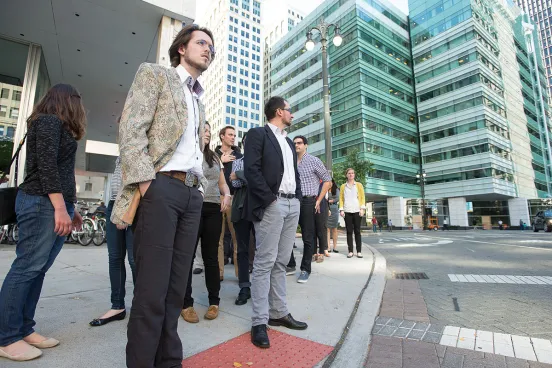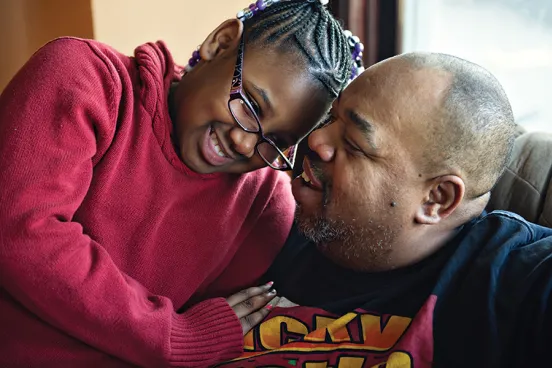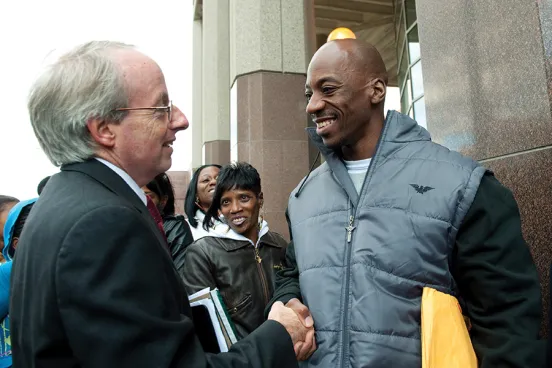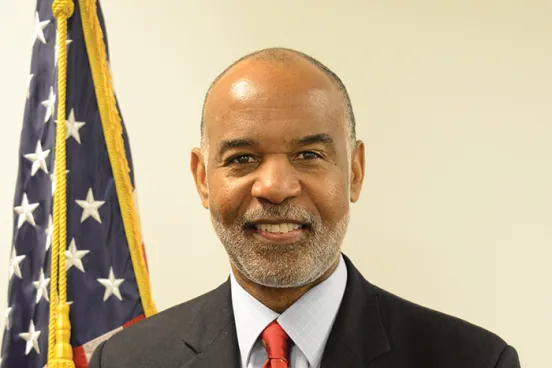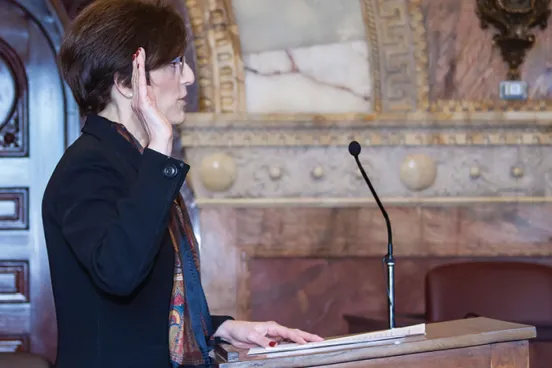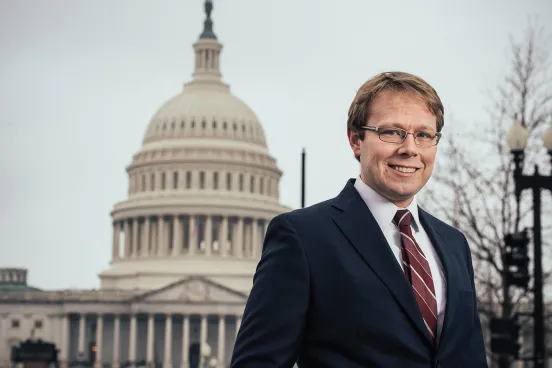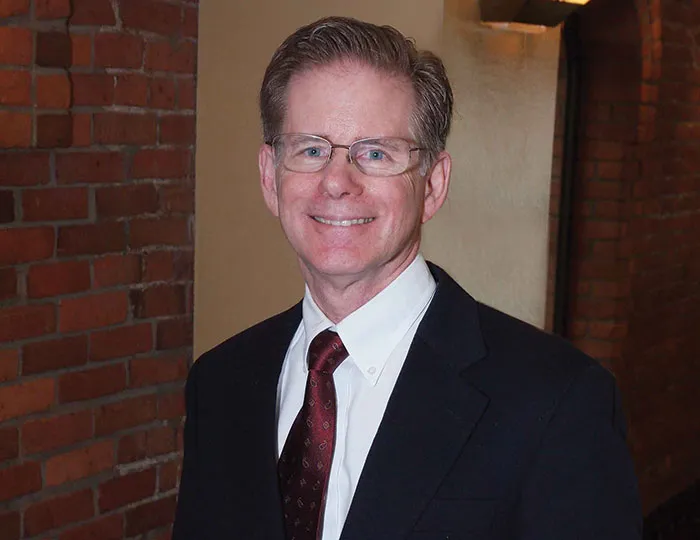
Much of what you need to know about Judge Steven Rhodes, ’73, friends and former colleagues say, can be gleaned from a handful of hours amid the hundreds he’s logged overseeing the largest public bankruptcy fi ling in U.S. history.
On a September day in Detroit’s grand federal court building, the veteran bankruptcy judge invited retirees and residents to tell him what the city’s massive restructuring would mean for them. Each had three minutes, but Rhodes was generous with the clock and let them have their say.
He didn’t have to do it.
“There is no requirement that a bankruptcy judge has to listen to individuals who are represented by (lawyers),” says former bankruptcy Judge Ray Reynolds Graves, who worked with Rhodes for 17 years. “Steve put that to one side and had the retirees come into court and address him personally. Listening to people who could be adversely affected by having their pensions cut—that tells you something about the man’s sensitivities.”
Rhodes’s character and conduct have been more closely scrutinized since the ruling that Detroit was eligible to fix its broken finances in bankruptcy court. Friends and colleagues say the chief bankruptcy judge in Detroit—approaching retirement himself—has pushed the human impact to the front of an often arcane, impenetrable case of creditors and complex financial formulas.
Many workers and retirees were crushed to hear him say their pensions aren’t protected by the Michigan Constitution and could be cut, though his order came with a less legal and more reassuring caveat: He vowed to be sensitive to how retirees are treated and won’t “lightly or casually” approve any reductions.
Much of what the broader public knows about the grandfather who also plays rhythm guitar in a band of bankruptcy officials is through what he has said in court—particularly his 90-minute oral opinion on the day in December that he greenlighted the city’s filing for Chapter 9 bankruptcy protection. Rhodes—who also taught Bankruptcy at Michigan Law in the fall—isn’t reluctant to express his views on the bench, often striking a populist tone. Michigan Gov. Rick Snyder, ’82, took the unprecedented step of testifying at trial about his role in approving the bankruptcy filing only after the judge strongly suggested that his attendance would not be excused.
During the eligibility trial, Rhodes sharply questioned Emergency Manager Kevyn Orr, ’83, about an earlier comment that pensions are “sacrosanct” and wouldn’t be touched. “What would you say to that retiree now?” Rhodes asked, a reference to Orr’s subsequent decision to propose cuts to pensions.
At another hearing, an investment banker said it was important that his firm help the city but only under certain confidential terms. “What’s very important to you is to make money,” the judge interjected.
Those exchanges, says Wayne State University Law Professor Laura Bartell, reveal his professional bearings. She says in his nearly 30 years on the bench in Detroit, Rhodes has guided far more individuals through the bankruptcy process than he has public or private entities. Detroit’s other most famous bankruptcy reorganizations, General Motors, and Chrysler, were filed in New York. “You’ve got to remember, bankruptcy in Detroit is about people,” says Bartell, who has invited Rhodes to speak to her classes and knows him through academic circles because of his roles as an adjunct professor and lecturer at Michigan Law. “He’s not going to allow big-city lawyers to come in and tell him that people are not important.”
Both Bartell and Michigan Law Professor John Pottow say Rhodes was the right judge selected to oversee the complex and unusual case —one that he accepted as he was planning to retire. Rhodes stayed on, Pottow says, “because he wanted to finish this case out.”
Pottow says Rhodes realizes “the plight of the city and workers,” who lack the federal pension protections of their private-sector counterparts. “This case is moving him,” says Pottow. Judge Rhodes “is trying to shame the political leaders to do something about this. ... There’s a moment where he can say things, and I think he’s taking advantage of the moment.”
When he is free of the dark robe, Rhodes plays in a band, the Indubitable Equivalents. The band’s website says the off-hours rhythm guitarist first serenaded his wife, Kathy, then his daughters and granddaughters, with songs such as “The Sound of Silence,” “Eve of Destruction,” and “Sloop John B.”
Another piece of his past diverges from jurisprudence, at least at first blush: Rhodes received a bachelor’s degree in mechanical engineering from Purdue University in 1970, three years before earning his law degree.
Graves says he used to tease Rhodes about being “half-Boilermaker and half-Wolverine,” but the retired judge says Rhodes puts his first degree to good use. “As an engineer, he wants thoroughness, completeness, and precision; he’s not a fan of sloppy lawyering,” Graves says. “I’d say to him, ‘Human beings are messy and sloppy. If they weren’t, we wouldn’t have these jobs.’”
Graves says Rhodes isn’t likely to leave any loose ends, something that’s important in such a high-profile case. “He knows he’s writing on a blank slate—new law for the country—and he wants to get it right,” Graves says. “Chapter 9 is a new model for all distressed cities in the country. ... He’s not passing this off on anybody else.”


